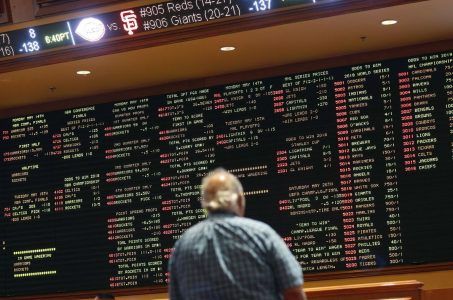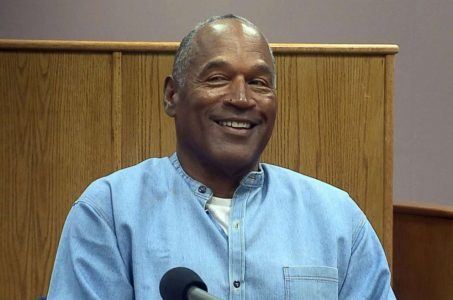Federal Sports Betting Oversight to Come Under Upcoming Senate Judiciary Committee Consideration
Posted on: June 7, 2018, 04:00h.
Last updated on: June 7, 2018, 01:52h.
Sports betting is no longer prohibited by the US government, but the US Senate Judiciary Committee plans to hold a hearing in the coming weeks on whether some level of federal regulation should be instituted as states consider whether or not they want to unroll wagering.

The Supreme Court of the United States (SCOTUS) repealed the longstanding federal sports betting ban last month. Six of the nine justices concluded that the Professional and Amateur Sports Protection Act (PASPA) of 1992 contradicted the Constitution on anti-commandeering interpretations of the Tenth Amendment.
The ruling essentially gave power back to the states to determine their own sports betting laws. Delaware this week became the first state to join Nevada in allowing its casinos to offer full-fledged sports gambling.
The professional sports leagues and NCAA — which sued New Jersey when it began trying to legalize sports betting at its horse racetracks and Atlantic City casinos in 2010 — have now called on Congress to act in the wake of the repeal to form a nationwide set of wagering regulations.
Here We Go Again
Back in 1992, Congress determined that states should not possess the right to set their own laws when it comes to the issue of sports betting. But they included exceptions for Nevada, Montana, Oregon, and Delaware, as those states had previously passed some sort of sports gambling regulations.
SCOTUS ruled that the federal government cannot force 46 states to adhere to laws that to do not apply to four others. Now, Congress seems to be considering drafting a series of regulatory conditions that states would be permitted to opt into should they wish to allow such gambling to take place within their borders.
NBA Commissioner Adam Silver and NFL Commissioner Roger Goodell prefer Congress to lead the regulatory conversation instead of each state having their specific set of rules. Nevada, Delaware, and Pennsylvania already have full-scale sports gaming protocols signed into law, and New Jersey is expected to join them this week.
Hatching a Plan
The rumored sports betting hearing to take place in the Senate Judiciary Committee will aim to educate lawmakers on the topic, with testimony provided from various interests and experts.
Senator Orrin Hatch (R-Utah) — who was one of the four authors of PASPA — says he will introduce a new bill to regulate the recently liberalized gambling format. Hatch is also a member of the Senate Judiciary Committee.
“The problems posed by sports betting are much the same as they were 25 years ago,” the 84-year-old said last month. “But the rapid rise of the internet means that sports betting across state lines is now just a click away.”
Hatch believes internet gambling cannot be adequately confined inside a state’s borders, and therefore warrants certain federal standards in governing sports betting operations, although geolocation technology already in place for Nevada, Delaware, and New Jersey’s online gaming operations has been largely trouble-free.
“We cannot allow this practice to proliferate amid uneven enforcement and a patchwork race to the regulatory bottom,” he concluded.
Related News Articles
Most Popular
FTC: Casino Resort Fees Must Be Included in Upfront Hotel Rates
Genovese Capo Sentenced for Illegal Gambling on Long Island
NBA Referees Expose Sports Betting Abuse Following Steve Kerr Meltdown
UPDATE: Former Resorts World & MGM Grand Prez Loses Gaming License
Most Commented
-
UPDATE: Whiskey Pete’s Casino Near Las Vegas Closes
— December 20, 2024 — 30 Comments -
Caesars Virginia in Danville Now Accepting Hotel Room Reservations
— November 27, 2024 — 9 Comments -
UPDATE: Former Resorts World & MGM Grand Prez Loses Gaming License
— December 19, 2024 — 8 Comments -
FTC: Casino Resort Fees Must Be Included in Upfront Hotel Rates
— December 17, 2024 — 7 Comments
















Last Comment ( 1 )
Internet sports wagering should be allowed nationwide, within U.S. boarders! That would be a standard most of us could live with, (With the proper congressional oversight.) Thank's for allowing me to comment.